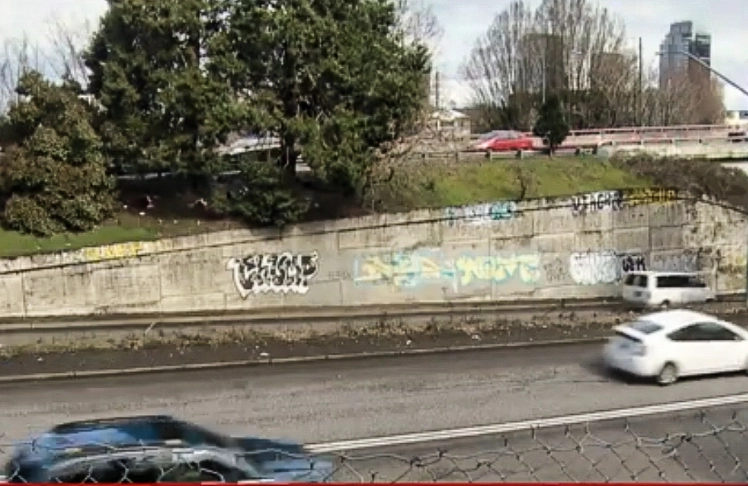
Efforts to address graffiti cleanup along Portland highways are on their way, thanks to an additional $20 million approved by the Oregon Legislature. The funding, part of the Oregon Department of Transportation’s (ODOT) budget, aims to tackle graffiti, litter, and homeless camp cleanup in the tri-county area. The initiative was proposed by Gov. Tina Kotek’s downtown task force and received unanimous approval from the Legislature.
Once the bill is signed by the governor, ODOT will begin issuing contracts to hire private companies for the cleanup work. In the coming weeks, residents can expect to see crews painting over graffiti and replacing vandalized highway signs along Portland’s main transportation arteries. The graffiti problem along the city’s main arteries has worsened since ODOT ran out of dedicated funds to remove and prevent vandalism on highways last summer. The allocation of $20 million aims to address this issue and improve the overall appearance of Portland’s highways.
Lawmakers recognize the importance of addressing budget shortfalls in ODOT, as the department has faced significant financial challenges due to a drop in revenue from the state’s gas tax. Hamilton, a representative involved in the budget discussions, emphasized that addressing these shortfalls will be a priority in next year’s legislative session.
Of the $20 million allocated, $4 million will be dedicated solely to painting over graffiti and replacing illegible, vandalized highway signs. Another $4 million will be allocated for homeless camp cleanup, while an additional $4 million will be used for litter removal. The remaining funds will be utilized to install barriers under bridges, near retaining walls, and along bike lanes to deter camping and RV parking.
By investing in graffiti cleanup, litter removal, and homeless camp cleanup, the state aims to create a safer and more aesthetically pleasing environment along Portland’s highways. The installation of barriers in strategic locations will also help deter camping and RV parking, addressing concerns related to public safety and the preservation of infrastructure.
The allocation of funds and the subsequent cleanup efforts are part of a broader initiative to enhance the livability and attractiveness of Portland’s transportation corridors. This investment reflects the commitment of state leaders to address pressing community concerns and improve the overall quality of life for residents and visitors alike.















